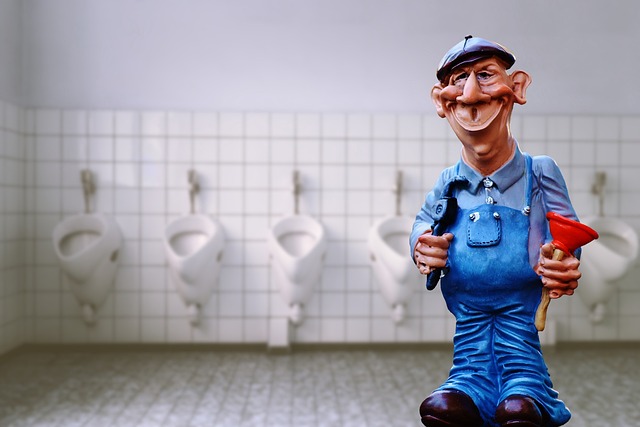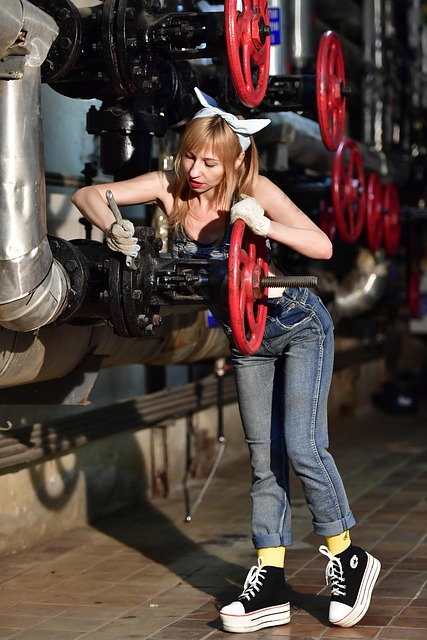Homeowners can often tackle common plumbing issues like leaks, clogs, and low water pressure using online tutorials and basic tools. However, for complex problems like broken pipes or faulty water heaters, professional plumber expertise is crucial for safe, effective repairs. Recognizing signs of deteriorating pipes prevents damage. The right tools (e.g., wrenches, pliers) aid DIY repairs, but complex tasks may require specialized tools; consulting a pro for major or uncertain issues minimizes further damage and costs.
Are you ready to take control of your plumbing or hand it over to a professional? This guide tackles the age-old question, DIY or call a plumber? We’ll help you navigate common plumbing issues, from unclogging drains and repairing leaky faucets to replacing toilet flappers. By understanding problem severity, acquiring essential tools, and knowing when professional help is needed, you can confidently handle minor repairs while knowing when to trust a plumber with the more complex tasks.
Assessing Your Plumbing Problem: Do-It-Yourself vs. Professional

When faced with a plumbing issue, the first question that arises is whether to tackle it yourself or call in a professional plumber. Assessing your problem is crucial in making this decision. Many common plumbing issues can often be diagnosed and fixed by homeowners using simple tools and some DIY know-how. Leaks, clogs, and low water pressure are typical examples where you might choose to try and fix it yourself. Online tutorials and videos for these basic repairs are readily available, guiding you step-by-step.
However, not all plumbing problems are straightforward. Complex issues like broken pipes, severe clogs, or faulty water heaters often require the expertise of a professional plumber. These specialists have the tools and skills to handle more intricate repairs, ensuring your home’s plumbing system is safely and effectively fixed. Remember, for major or uncertain plumbing problems, it’s wise to consult a pro to avoid further damage or costly mistakes.
– Understanding common plumbing issues and their severity

Plumbing problems can range from minor inconveniences to severe crises, depending on the issue and its impact on your home. Understanding common plumbing issues is the first step in knowing when to tackle them yourself or when to call a professional plumber. Clogs, for instance, are a frequent problem that can be addressed with basic tools if caught early. However, more complex issues like broken pipes, leaks, or faulty water heaters often require specialized knowledge and equipment, making DIY solutions ineffective and potentially causing further damage.
Knowing the severity of an issue helps in making informed decisions. Simple clogs can be unblocked using a plunger or drain snake, while persistent or widespread clogs might indicate a more serious problem like tree root intrusion or pipe corrosion. Leaks, especially in older homes, could be a sign of deteriorating pipes and may require immediate attention to prevent water damage and waste. Recognizing these common plumbing issues and their potential impact is key to maintaining a well-functioning plumbing system.
– Tools and supplies for DIY repairs

When tackling common plumbing issues, having the right tools and supplies is crucial for both DIY repairs and knowing when to call a professional plumber. For minor problems like leaky faucets or simple clogs, a well-equipped toolbox can save time and money. Essential items include adjustable wrenches for tight spaces, pliers for gripping and twisting, and a variety of size pipes and fittings for replacements. A plunger is an indispensable tool for unclogging drains, while a pressure gauge helps identify water pressure issues. For more complex tasks like replacing toilet flappers or fixing burst pipes, specialized tools like soldering iron or pipe cutters might be needed. Having these in your arsenal empowers you to handle basic plumbing repairs confidently before considering calling a plumber for more intricate problems.
When it comes to handling common plumbing problems, knowing when to tackle them yourself or call a professional is key. By understanding the severity of issues like clogs, leaks, and low water pressure, you can make informed decisions. If DIY repairs are within your comfort level and skill set, gathering the right tools and supplies can save time and money. However, for more complex problems, enlisting a plumber’s expertise ensures effective and lasting solutions. Whether you choose DIY or professional help, addressing common plumbing issues promptly prevents bigger, costlier headaches down the line.
